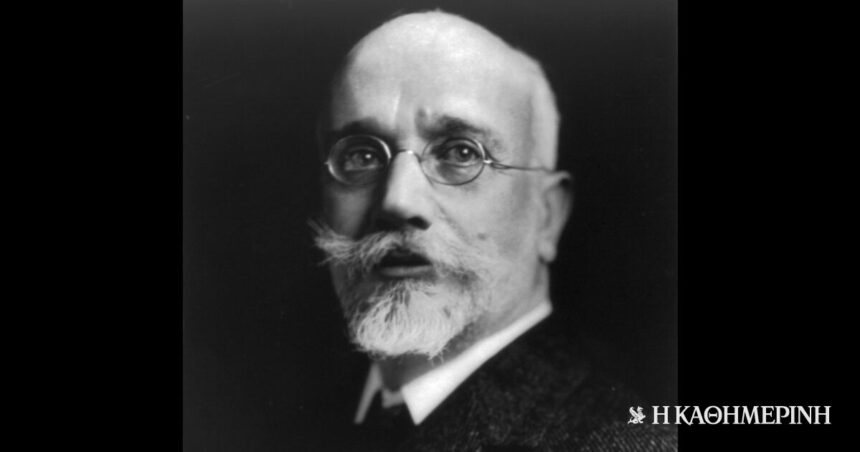Greece emerged from the war of 1897 weakened. The trauma of defeat was deep. Generations of Greeks since the foundation of the Greek state in 1830 grew up with the dream of liberating the unredeemed Greeks and expanding the borders to the North and East. The Eastern Question remained on the agenda of the country’s foreign policy, even though it became clear that Greece was unable to fulfill its goals – at least in the near future. The difficult economic situation in which the country found itself also contributed to this weakness of Greece. It was deemed necessary to impose International Financial Control on the public finances of Greece, in order to service the loans, which had ceased to be repaid after the bankruptcy of 1893.
The day after the end of the war, the Greek political and state leadership was faced with a multitude of problems. There was intense contention for the throne, as he was seen by many as responsible for the defeat. Since the crown prince was the head of the war operations, he was also considered to bear the responsibility for their unfavorable outcome. Despite the backlash, Prime Minister George Theotokis gave Crown Prince Konstantinos the post of commander-in-chief and inspector general of the army in 1900, believing that this would insulate the armed forces from party interference. Nevertheless, the behavior of the crown prince displeased a large part of the military leaders, as he only favored his protégés.
At the same time, the situation in Macedonia was getting more and more drawn out, with the Bulgarians constantly gaining ground against Hellenism. The Macedonian Struggle, in which many young officers of the Greek armed forces participated, was largely seen as washing away the shame of the defeat of 1897. Although Hellenism emerged victorious from the armed Macedonian Struggle of 1904-1908, it existed in a large part of society , and especially of the officers, the belief that Greece remained inactive, at a time when in its wider neighborhood the flow of developments was rapid. In 1908, with their revolution, the Young Turks attempted to reform the crumbling Ottoman Empire, Austria-Hungary annexed Bosnia-Herzegovina, and Ferdinand’s Bulgaria declared its independence from the Ottoman Empire. These were events that should have awakened the Greek political leadership. At least that’s what some of the Greek officers believed.
On August 14-15, 1909, the Military Association, an organization of officers and non-commissioned officers, demonstrated a movement in Goudi, led by artillery colonel Nikolaos Zorbas. The demands of the movement were mainly related to military issues, such as armaments and the reorganization of the army. The activists did not set clear political goals, they assured their loyalty to the crown, but they demanded the removal of the crown prince and the rest of the princes from the army.
The government of Dimitrios Ralli was forced to resign and a new one was formed under the leader of the Dilijan party, Kyriakoulis Mavromichalis. The new government accepted the movement’s demands and Zorbas in turn ordered the units to return to their barracks. In the following weeks, the tension between the members of the Association and the politicians escalated. The military believed that reforms were taking place too slowly. The League’s prestige suffered in October 1908 following the suppression of the movement by some disaffected naval officers. Although there were voices calling for the imposition of a dictatorship, the leadership of the League categorically rejected this idea. A political solution to the situation was preferred.
The proposal of inviting Eleftherios Venizelos to Greece had already been recorded since the establishment of the Military Association. Venizelos was a lawyer from Chania, who had political and diplomatic experience from his involvement in politics in the Cretan State. In his articles in the newspaper Kyryx of Chania, he had supported the reformist goals of the movements, while in the past he had not hesitated to clash with the second-born king, Prince George, who was the High Commissioner of the Cretan State. Venizelos accepted the proposal and arrived in Athens on December 28, 1909, but refused the leadership of the Association. He suggested to his leadership the formation of a government under Stefanos Dragoumis and the convening of a Double Revisionary Parliament instead of a Constituent one, which was requested by many of his members.
When George I signed the decree announcing the elections, in mid-March 1910, the Military Association announced its dissolution. Until the elections were held, the transitional Dragoumi government implemented the reform policy desired by the members of the Association, taking at the same time all the necessary measures to prepare the revision of the constitution. Elections were held in August 1910.
Column editor: Myrto Katsigera, Vassilis Minakakis, Antigoni-Despina Poimenidou, Athanasios Syroplakis








